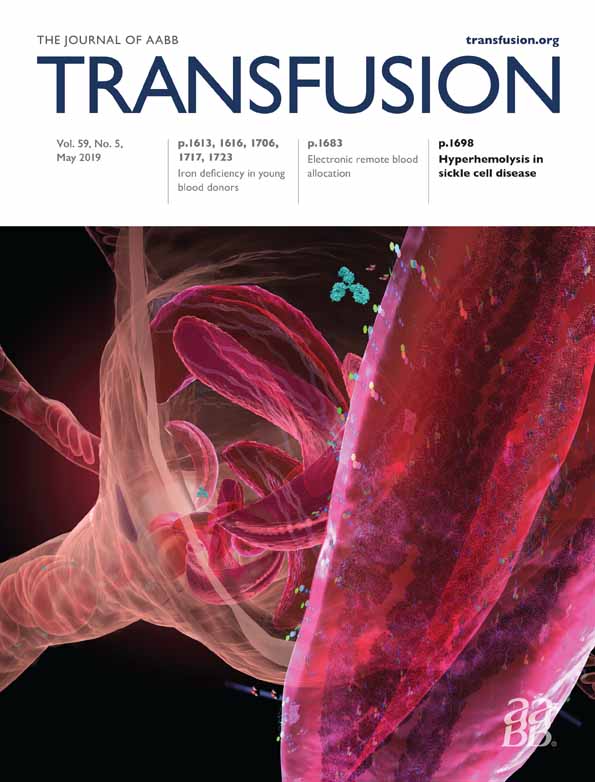The nonconservative CD177 single-nucleotide polymorphism c.1291G>A is a genetic determinant for human neutrophil antigen-2 atypical/low expression and deficiency
Abstract
BACKGROUND
Human neutrophil antigen-2 (HNA-2) is exclusively expressed on neutrophils. HNA-2–deficient individuals (HNA-2 null) are susceptible to produce isoantibodies. The nonsense CD177 coding single-nucleotide polymorphism (SNP) c.787A>T has been demonstrated as the primary genetic mechanism for HNA-2 deficiency. We hypothesized that the other genetic variants also contribute to HNA-2 expression variation and deficiency.
STUDY DESIGN AND METHODS
The deficiency, density, and percentage of HNA-2 antigen on neutrophils from 292 healthy blood donors were determined in flow cytometry. CD177 genotypes were determined by genomic DNA sequence analyses. The full-length CD177 cDNAs were amplified and sequenced. Additionally, the whole CD177 genomic sequence in eight HNA-2–null immunized women and four HNA-2–positive donors were analyzed with next-generation sequencing. The associations of CD177 SNP genotypes with HNA-2 expression variation were statistically analyzed.
RESULTS
A functional CD177 SNP c.1291G>A was identified in the current study. Atypical (trimodal) HNA-2 expression phenotype was consistently observed in donors carrying the heterozygous c.1291G/A genotype. Phenotype-genotype analyses of SNP c.787A>T and SNP c.1291G>A revealed that all homozygous 787T-1291G (TG/TG) genotype donors were HNA-2 null in healthy blood donors. On the other hand, five of eight HNA-2–immunized females were homozygous for the 787T-1291G (TG/TG) genotype while the other three HNA-2–immunized females had the 787T-1291G/787A-1291A (TG/AA) genotype and the lowest HNA-2 expression was observed in healthy subjects with the 787T-1291G/787A-1291A (TG/AA) and 787A-1291A/787A-1291A (AA/AA) genotype.
CONCLUSION
The CD177 SNP c.1291G>A is a genetic determinant for the atypical and low HNA-2 expression, which also contributes to HNA-2 deficiency phenotype.
CONFLICT OF INTEREST
The authors have disclosed no conflicts of interest.




